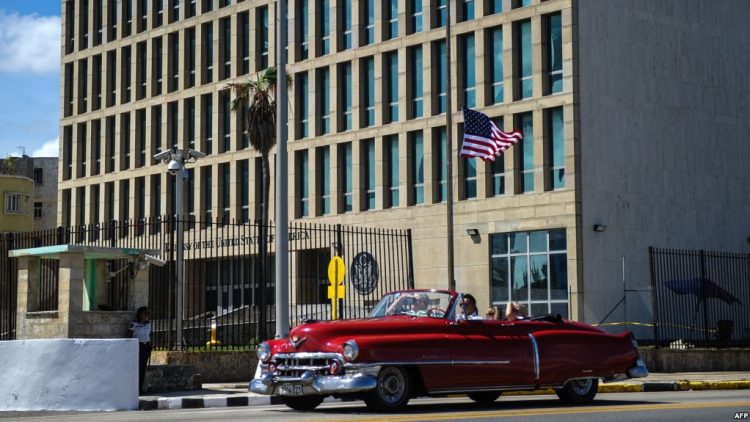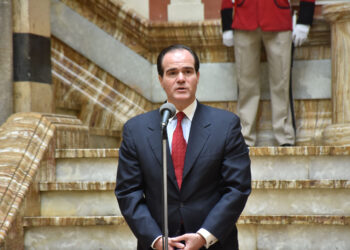Migration talks between the United States and Cuba began in Washington this Thursday, meetings that were to be held twice a year, but were interrupted in 2018. The last meeting was on February 11 of that year.
The agenda includes mainly immigration issues and consular services, according to the parties.
On Wednesday, before the tone of the talks was made public, Homeland Security Secretary Alejandro Mayorkas traveled to Panama to attend a regional meeting on the migration crisis in Central America. There he made U.S. concerns known. “I don’t want to get ahead of the dialogue between the United States and Cuba, but as everyone knows, we have had migration accords with the country of Cuba for many, many years. Those were discontinued, and we will explore the possibility of resuming that,” said Mayorkas at a press conference.
This Thursday, the United States and Cuba finally released two statements about the meeting on migration issues held in Washington DC. The meeting was led by Deputy Assistant Secretary for Western Hemisphere Affairs Emily Mendrala for the U.S. delegation, and Deputy Foreign Minister Carlos Fernández de Cossío for the Cuban delegation.
In its text, the U.S. side announced that as of May it will begin to process immigrant visas for Cuban citizens “on a limited basis” at its Embassy in Havana. The United States addressed the issue of consular services at the Embassy “to include resumption of immigrant visa services on a limited basis starting in May, current American citizen services, and current issuance of emergency non-immigrant visas,” the note stated.
Washington also expressed that “Enabling safe, legal, and orderly migration between Cuba and the United States remains a mutual interest between the United States and Cuba and is consistent with U.S. interests in fostering family reunification and promoting greater respect for human rights and fundamental freedoms in Cuba.”
“These migration talks,” the statement says, “provide an opportunity for discussions on mutual implementation of the Migration Accords (comprised of a series of bilateral agreements between the United States and Cuba done in 1984, 1994, 1995, and 2017).”
For its part, the Cuban delegation “reiterated its concern about the U.S. government measures that encourage migration, prevent legal and orderly migration, and generate socioeconomic conditions that encourage emigration.” It stressed that “these measures, including those associated with the extreme reinforcement of the economic blockade, cause loss of life and the commission of crimes of migrant smuggling, immigration fraud and human trafficking, a situation that affects both countries and the region.”
On the other hand, it “insisted on the obligation of the United States government to guarantee the issuance in Havana of no less than 20,000 annual visas to Cubans to emigrate to the United States, a commitment that has been breached since 2017.” It “emphasized that there is no justification to keep that service interrupted in Cuba and in order to emigrate forces the applicant to travel to Guyana so that his application can be processed.”
Finally, it reiterated that “the United States must stop hindering and violating the rights of Cubans to travel to third countries in the area” and demanded “compliance with the bilateral migratory agreements in their entirety and not selectively.”
According to U.S. data, from October 2021 to March 2022, more than 78,000 Cubans entered the country through the border with Mexico, a figure that doubles the number that left the island during the so-called rafters crisis, in 1994, when Cubans picked up on the high seas were taken to the Guantánamo Naval Base to be transferred to the United States after several years.
The first U.S.-Cuba migration agreements were signed in 1984 and the second ones a decade later.










